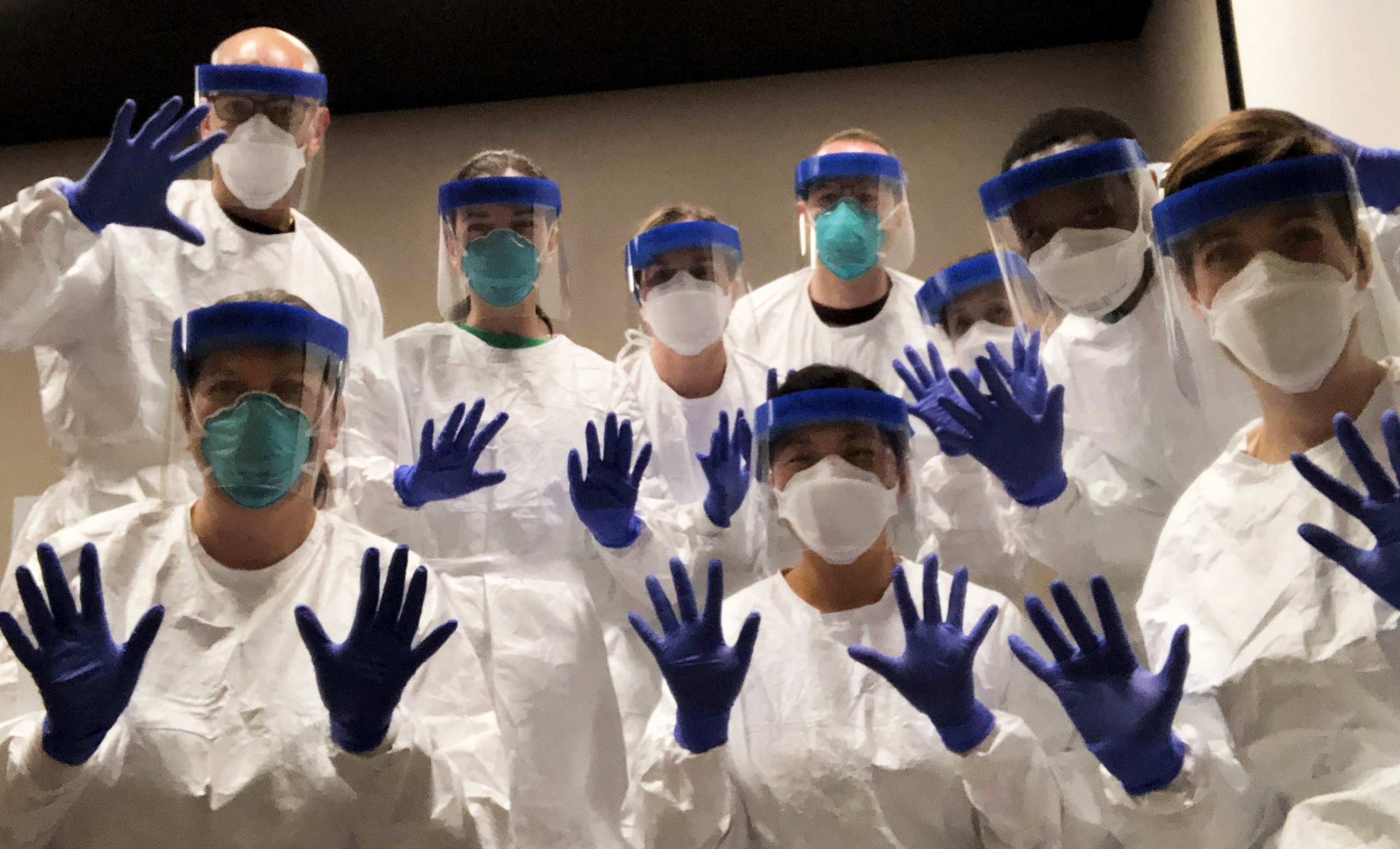Recommendations for Fully Vaccinated People
COVID-19 Homepage
CDC Accelerates Global COVID-19 Vaccinations through Global VAX
Fact Sheet: CDC Accelerates Global COVID-19 Vaccinations Through Global VAX Pdf[565 KB, 2 pages]
The Initiative for Global Vaccine Access (Global VAX) is a whole-of-United States government effort to turn vaccines in vials into vaccinations in arms for eligible populations around the world. Through Global VAX, the United States government will contribute to the global goal to meet vaccination targets in all countries.
CDC is committed to accelerating progress toward widespread and equitable access to safe and effective COVID-19 vaccines. CDC supports more than 70 countries globally to receive and administer COVID-19 vaccines. CDC’s global vaccine efforts through Global VAX strengthen countries’ capacity to plan for and deliver COVID-19 vaccines while building long-term, sustainable capacity for immunization programs and response to infectious disease threats. Around the world, CDC is supporting countries in building COVID-19 vaccine demand, as well as the planning, implementation, and evaluation of vaccine programs.
CDC’s Global Vaccine Priorities
The United States is donating more than 1.2 billion COVID-19 vaccines to countries most in need. As access to the COVID-19 vaccine supply increases globally, CDC’s global vaccine efforts through Global VAX have shifted from vaccine preparedness to implementation, with a focus on planning, improving vaccine confidence and demand, supporting vaccine safety monitoring, and evaluating vaccines and vaccination programs.
CDC experts work hand-in-hand with ministries of health and global partners to identify critical needs and tailor support, including:
Vaccine Planning and Implementation:
- Ensuring countries are ready to receive and administer COVID-19 vaccines by supporting development of country-specific COVID-19 vaccine preparedness and implementation plans.
- Providing technical assistance to countries on available COVID-19 vaccine delivery strategies to improve vaccine access and service quality.
Vaccine Workforce Development:
- Providing technical expertise and resources to strengthen the capacity of the global immunization workforce to deliver COVID-19 vaccines.
Vaccine Safety Monitoring with Strategic Information:
- Enhancing safety monitoring systems in countries to ensure quick detection and investigation of safety concerns at regional, national, and global levels.
- Strengthening data management and analytics to help ensure timely, high-quality data for reporting and monitoring COVID-19 vaccine delivery and adverse events.
- Supporting countries and technical partners to strengthen COVID-19 data management guidance, capacity building, and training activities that inform decision-making.
Vaccine Confidence and Demand:
- Conducting rapid assessments to understand barriers and facilitators of COVID-19 vaccination among healthcare workers and prioritized communities.
- Implementing and evaluating evidence-based interventions to increase demand and uptake of COVID-19 vaccines.
- Building trust in COVID-19 vaccines by engaging individuals, communities, community leaders, healthcare workers and the media in promoting accurate, credible vaccine information.
- Supporting ministry of health and immunization program stakeholders to promote demand for COVID-19 vaccines, including infodemic management and addressing misinformation and information voids.
Evaluation of Vaccines and Vaccination Programs:
- Strengthening the evaluation of COVID-19 vaccine program activities to improve vaccine delivery and learn from country experiences with COVID-19 vaccine roll-out.
- Advancing the establishment of vaccine effectiveness study sites to conduct ongoing evaluations as new vaccine formulations are developed and new variants emerge.
CDC Support for Global VAX
CDC is supporting evaluations of COVID-19 vaccines’ effectiveness against SARS-CoV-2 variants, effectiveness of COVID-19 vaccinations for target populations, and effectiveness of different types of vaccines in more than a dozen countries and through regional networks across four World Health Organization (WHO) regions (PAHO, EURO, AFRO and SEARO). These collaborations have contributed to early real-world vaccine effectiveness estimates for global vaccine products and have helped inform global vaccine policy.
CDC has leveraged longstanding relationships with U.S. President’s Emergency Plan for AIDS Relief (PEPFAR) clinical partners in multiple countries, including South Africa, Tanzania, Uganda, Zambia, and Haiti to support their COVID-19 vaccine administration efforts.
CDC supports vaccine administration in more than 70 countries worldwide.
CDC in Action: Global Vaccine Activities
Belize:
- CDC’s support of the Ministry of Health and Wellness lead to a surge in the number of trained staff who could administer COVID-19 vaccines. This proved to be instrumental in Belize’s success in vaccinating 50.4% of the eligible population against COVID-19 by late 2021.
Uganda:
- CDC is leveraging existing platforms and decades-long relationships developed through PEPFAR to assist with COVID-19 emergency response efforts.
- CDC and its partners are collaborating with five regional partners to support COVID-19 vaccination uptake in priority groups and strengthen vaccine data management and monitoring.
- CDC experts worked with a local television broadcast network to emphasize the critical importance of people living with HIV to get vaccinated against COVID-19.
Mali:
- CDC, in partnership with local organizations, is supporting the Mali Ministry of Health to train more than 800 healthcare workers involved in COVID-19 vaccination activities across the country.
- CDC is conducting a survey to understand COVID-19 vaccine demand and hesitancy in specific areas of the country.
Thailand:
- CDC’s support of expanding existing influenza research platforms and integration of COVID-19 surveillance into the influenza sentinel surveillance system helped in-country partners evaluate vaccine effectiveness for COVID-19 vaccines.
- CDC provided technical assistance to support genetic sequencing efforts of SARS-CoV-2.
